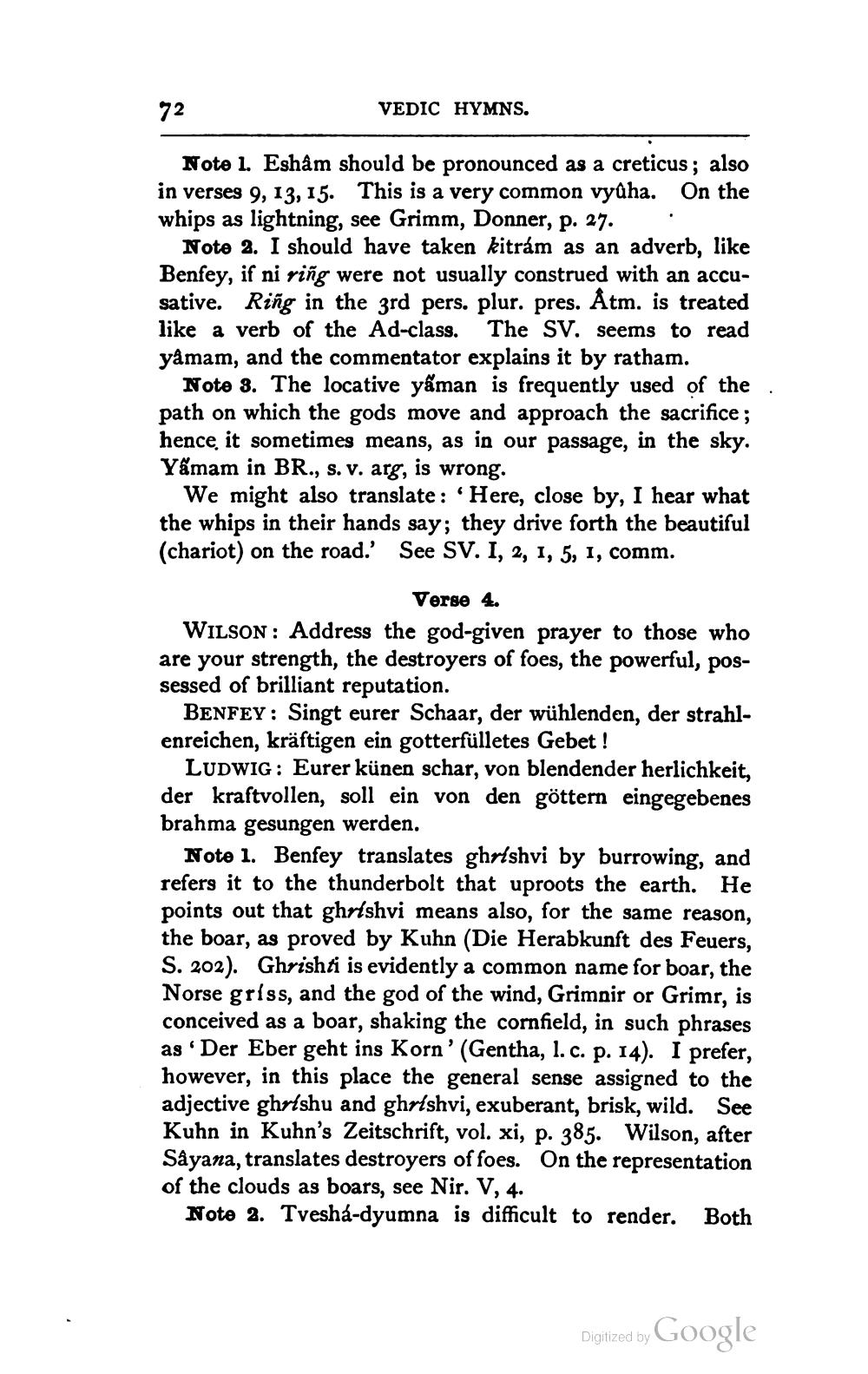________________
72
VEDIC HYMNS.
Note 1. Eshâm should be pronounced as a creticus; also in verses 9, 13, 15. This is a very common vyûha. On the whips as lightning, see Grimm, Donner, p. 27. :
Note 8. I should have taken kitrám as an adverb, like Benfey, if ni ring were not usually construed with an accusative. Ring in the 3rd pers. plur. pres. Åtm. is treated like a verb of the Ad-class. The SV. seems to read yamam, and the commentator explains it by ratham.
Note 8. The locative yaman is frequently used of the path on which the gods move and approach the sacrifice; hence it sometimes means, as in our passage, in the sky. Yamam in BR., s. v. arg, is wrong.
We might also translate: 'Here, close by, I hear what the whips in their hands say; they drive forth the beautiful (chariot) on the road.' See SV. I, 2, 1, 5, 1, comm.
Verse 4. WILSON: Address the god-given prayer to those who are your strength, the destroyers of foes, the powerful, possessed of brilliant reputation.
BENFEY: Singt eurer Schaar, der wühlenden, der strahlenreichen, kräftigen ein gotterfülletes Gebet!
LUDWIG: Eurer künen schar, von blendender herlichkeit, der kraftvollen, soll ein von den göttern eingegebenes brahma gesungen werden.
Note 1. Benfey translates ghrishvi by burrowing, and refers it to the thunderbolt that uproots the earth. He points out that ghrishvi means also, for the same reason, the boar, as proved by Kuhn (Die Herabkunft des Feuers, S. 202). Ghrishti is evidently a common name for boar, the Norse griss, and the god of the wind, Grimair or Grimr, is conceived as a boar, shaking the cornfield, in such phrases as 'Der Eber geht ins Korn' (Gentha, 1. c. p. 14). I prefer, however, in this place the general sense assigned to the adjective ghrtshu and ghrishvi, exuberant, brisk, wild. See Kuhn in Kuhn's Zeitschrift, vol. xi, p. 385. Wilson, after Såyana, translates destroyers of foes. On the representation of the clouds as boars, see Nir. V, 4.
Note 2. Tveshá-dyumna is difficult to render. Both
Digitized by
Digized by Google




